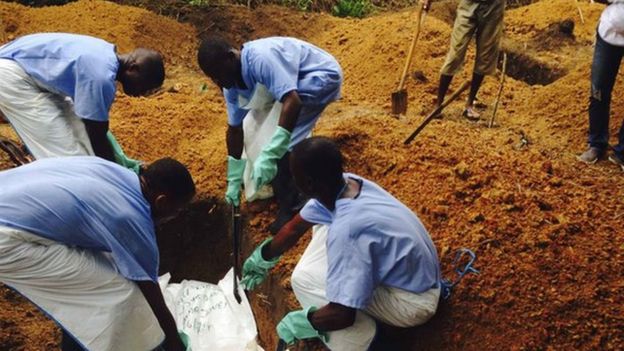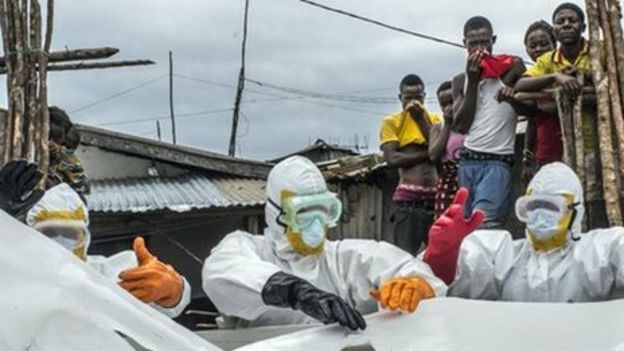Ebola global response was 'too slow', say health experts
By BBC News
A slow international response and a failure of leadership were to blame for the "needless suffering and death" caused by the recent Ebola epidemic, an independent panel of global health experts has concluded.
The panel's report, published in The Lancet, said major reforms were needed to prevent future disasters.More than 11,000 people died in the outbreak, which began in 2013.
The World Health Organization has set out plans for reform.
Ebola cases
Guinea, Liberia and Sierra Leone were the countries most badly affected by Ebola.The independent group of experts, convened by The Harvard Global Health Institute and the London School of Hygiene & Tropical Medicine, said these countries were unable to detect, report and respond rapidly to outbreaks - something which allowed Ebola to develop into "a worldwide crisis".
But the report reserved most criticism for the World Health Organization, saying it was too slow to declare Ebola an international public health emergency - five months after Guinea and Liberia had notified it of outbreaks.
It said the WHO had also failed to meet its responsibilities for responding to the outbreak because of a lack of leadership and accountability.
WHO's director-general Margaret Chan has already said publicly that, with the benefit of hindsight, WHO could have mounted a more robust response. And she has promised some fundamental changes to the Organization, such as creating a single new programme for health emergencies.

"The reputation and credibility of the WHO has suffered a particularly fierce blow," the report said.
The panel also criticised some political leaders for playing down the outbreak and not calling for international help.
Deadliest outbreak

- Over 11,000 people have died from Ebola since the epidemic erupted in 2014 - a six-fold increase of victims since its discovery in 1976.
- Some scientists say there's a risk the virus may become an ever-present disease in West African society


0 Comments:
Post a Comment
Subscribe to Post Comments [Atom]
<< Home